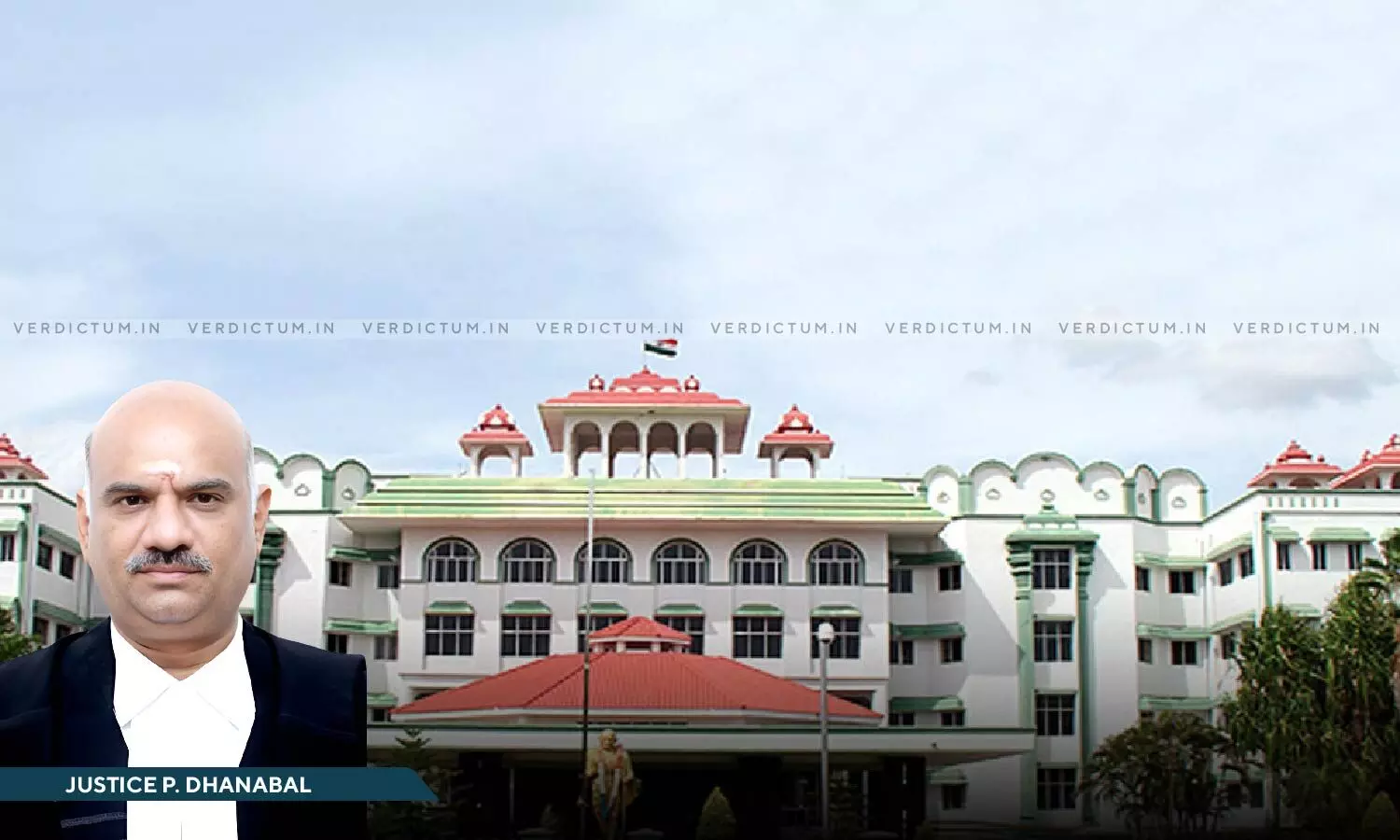
Mere Production Of Samples Of Contraband Seized By Police Not Sufficient To Satisfy Condition Of Sec 52(A) Of NDPS Act: Madras HC
 |
|Observing that the prosecution is not free from the suspicion and the same has not been established beyond reasonable doubt, the Madras High Court recently held that the mere production of samples that were seized by the police before the Court is not sufficient to satisfy the condition of Section 52(A) of the Narcotics and Psychotropic Substances Act.
The High Court held so while considering a petition challenging the judgment of conviction under the NDPS Act, wherein the Trial Court has convicted the accused for the offences under Section 8(c) read with Section 20(b)(ii)(C) of NDPS Act and sentenced him to undergo 10 years rigorous imprisonment and to pay a fine of Rs.1,00,000/- in default to undergo six months simple imprisonment.
Referring to the decision passed by the Apex Court in Simarnjit Singh vs. State of Punjab [2023 Live Law (SC) 570], a Single Judge Bench of Justice P. Dhanabal observed that “the samples ought to have been drawn in the presence and supervision of Magistrate and entire exercise have to be certified by him to be correct. Therefore, the mere production of samples which were seized by the police before the Court is not sufficient to satisfy the condition of Section 52(A) of NDPS Act.”
Advocate Karuppasamy Pandian appeared for the Petitioner whereas Advocate S. Ravi appeared for the Respondent.
The brief facts of the case were that the respondent had received a piece of secret information. Based on such information, the respondent inspected the Vehicle of the petitioner and found two polythene bags containing 30kgs each of Ganja. The respondent seized the same. The samples were drawn and the petitioner was taken to the police station an FIR was registered and he was subsequently convicted under Section 8(c)r/w.20(b)(ii)(C) of the NDPS Act.
It was contended that the petitioner did not know Tamil but the entire evidence was recorded without appointing a translator and thus his right to a fair trial was denied by the trial court. It was also submitted that the mandatory procedures under Sections 50 and 52(A) and 57 of the NDPS Act were not complied with and the ownership of the vehicle from which the contraband was seized was also not identified.
After considering the submission, the Bench noted that the accused was not searched by the police for the person and the vehicle was only searched.
Regarding the absence of a translator, the Bench noted that the Trial court had made an endorsement while framing of charge to the effect that though there was no special translator, the charges were explained to the accused by a Hindi-knowing person.
The Bench also noted that the procedures under Section 57 were also to be complied with as the reports were sent to the superior officer after the arrest and recovery of materials.
Observing that the search must be conducted in the presence of the nearest Gazetted Officer or nearest Magistrate so as to apply Section 50 of NDPS Act, the Bench found that in the present case, the accused was not searched by the respondent police to the person and the body of the accused was not searched by the respondent police and they only searched the vehicle.
Referring to the Case of Simarnjit Singh vs. the State of Punjab, the Bench reiterated that if the samples drawn are not in conformity with the law, it creates serious doubt over the prosecution case that the substance recovered was contraband.
The Bench also pointe that so far as the ownership of the vehicle is concerned, the Trial Court also acquitted the accused for the offence under Section 25 of the NDPS Act, holding that the accused is not the owner of the vehicle.
The Bench further added that, as far as the presumption under Sections 35 and 54 of the NDPS Act is concerned, the prosecution has to prove the foundational facts to the commission of offence but in the present case, the possession itself was not proved thereby the presumption under Sections 35 and 54 of NDPS Act would not attract.
Accordingly, on finding that the prosecution had failed to prove the case beyond a reasonable doubt, the High Court set aside the conviction and acquitted the accused from the charges under Sections 8(c) read with Section 20(b)(ii)(C) of NDPS Act.
Cause Title: N. Uganchand Kumawat v. The Inspector of police
Click here to read/ download the Judgment